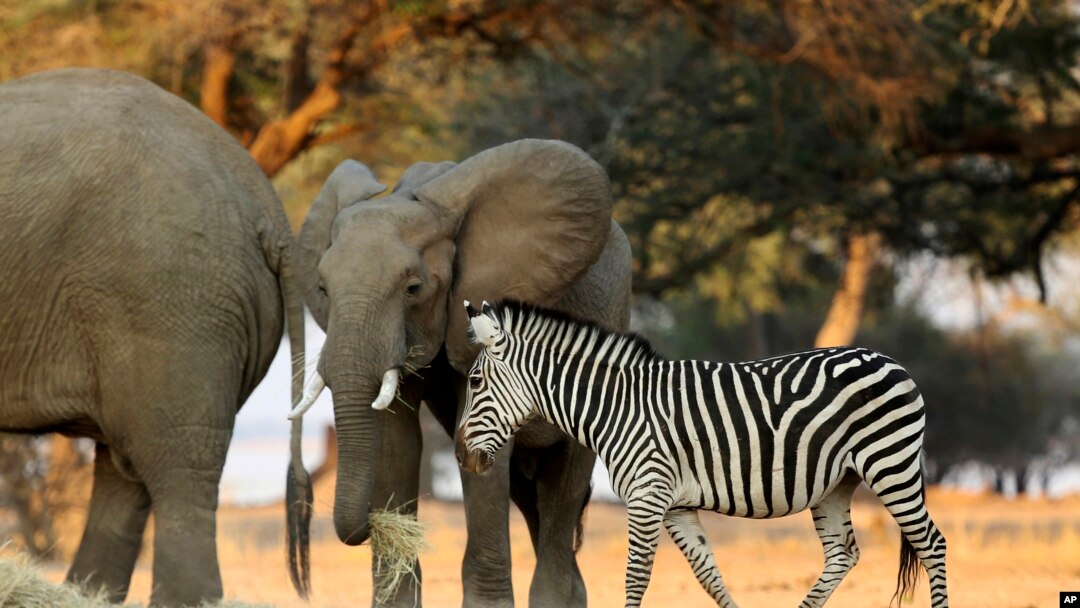BULAWAYO – While the world marks Earth Day Saturday, one Zimbabwean conservationist has embarked on an exchange program at the famed Disney World Animal Kingdom in Orlando, Florida, hoping the experience will expand his conservation skills and help save Africa’s wildlife.
Thirty-year-old Blessed Gundo was born in Chitungwiza, a suburb of Zimbabwe’s capital, Harare, Zimbabwe’s capital, but grew up in the resort town of Victoria Falls, where he works and lives.
Gundo, who began his Disney internship in Florida just after Easter, initially pursued marketing after high school, but a love for the wild led him to train at the government-run Zimbabwe Institute of Wildlife Management.
He had envisioned a career as a park ranger, but after attaining a permit to be a guide, decided to work independently, pursuing his passion as a conservationist.
“What inspired me to be a tour guide and wildlife conservationist,” said Gundo, [were] documentaries on National Geographic showing different animals and different animal behavior. Also, my aunt, who is a professional guide in Zimbabwe, enhanced my love for wild animals and [influenced me to] venture into conservation.”
Part of Gundo’s work at Victoria Falls – one of the natural wonders of the world – includes taking clients on game drives, as well as teaching school children about conservation. He is doing similar work at the Animal Kingdom in Florida – and talking about Zimbabwean culture and conservation.
“My job here,” he explained, “is to make people understand the importance of conservation. Morevoer, it’s a cultural exchange program whereby I have to relate my culture [to] wildlife… [and explain] how we Africans used to conserve animals.”
At home, Gundo volunteers with conservationist groups and participates in anti-poaching activities, including rescuing wild animals caught in poachers’ snares. For him, the work is risky but gratifying.
“I love being in the bush, having some encounters with animals,” he said. “Being in the bush is not 100 percent safe. Sometimes you will [face] danger from both animals and poachers...[like] when I was with my colleagues in Hwange [National Park] and we had to run for our lives after an elephant charged at us.”
In 2017, Gundo took part in a conservation walk focused on raising awareness on preserving elephants. The campaign, titled “Ivory Belongs To Elephants,” had a team of some of Africa’s conservation activists who walked from Kenya to Botswana, through Zimbabwe.
Between them, Botswana and Zimbabwe hold the world’s biggest populations of savanna elephants and have been lobbying for lifting a ban on trade in ivory and elephant by-products imposed by the UN’s Convention on International Trade in Endangered Species of fauna and flora, or CITES.
Gundo acknowledged the issue is controversial but believes that the world’s largest terrestrial mammal needs to be protected.
“It’s only us who put a price tag depending on the kilograms,” he said. “But an elephant is supposed to have its ivory…it’s like taking one’s teeth (out) – how would you feel if one were to take [out] your teeth? My own point of view is that CITES is not supposed to lift the ban.”
Gundo said he feels that despite inadequate resources, the government of Zimbabwe is doing its best to conserve the country’s wildlife, but says there is need for more involvement by the private sector and other stakeholders. He also calls for more awareness campaigns on wildlife conservation.
He suggests the teaching of conservation in schools, on radio and every social media platform so that people can appreciate the importance of Africa’s heritage.


